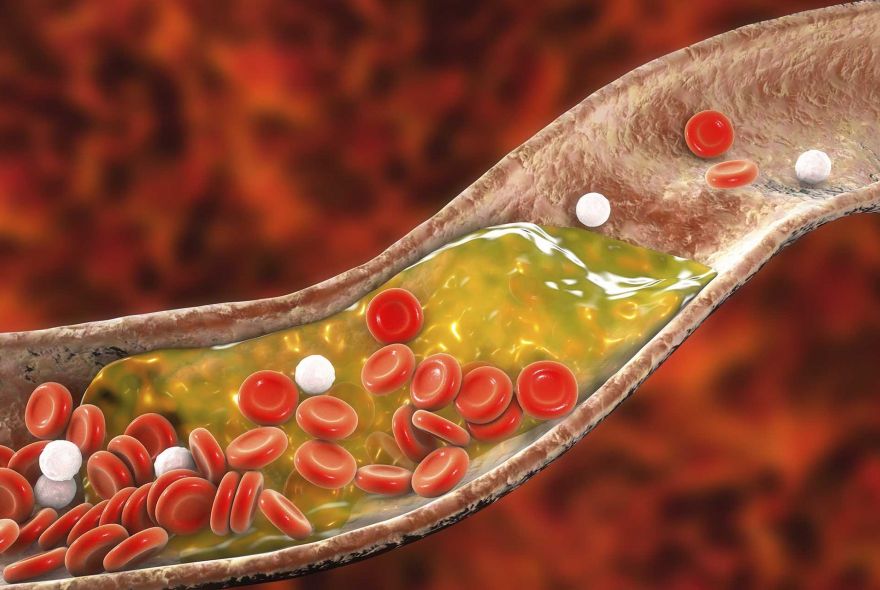What is high cholesterol?
Cholesterol is a type of blood fat (lipid). We all need some cholesterol in our blood to stay healthy, but too much can lead to serious health problems in the future, including heart attacks and strokes.
Anyone can have high cholesterol – even if you are young, slim, eat well and exercise. That’s because high cholesterol can be caused by different things. It can be caused by an unhealthy lifestyle, but it can be genetic too.
High cholesterol is very common, but most people don't know they have it because it doesn't usually have any symptoms. That's why everyone should have a cholesterol check.
Another type of blood fat called triglycerides can also become raised and lead to health problems, you can have these checked too.
If your cholesterol is raised, there are treatments available if you need them. But it's usually possible to lower cholesterol naturally with healthy lifestyle changes.
What happens if you have high cholesterol?
What does high cholesterol mean?
High cholesterol means there is too much cholesterol in your blood. This can clog up your arteries – the large blood vessels that carry blood around your body. Over time, this can lead to serious problems.
How does cholesterol clog up your arteries?
Excess cholesterol can be laid down in the walls of your arteries. Fatty areas known as plaques can form, and these become harder with time, making the arteries stiffer and narrower. This process is called atherosclerosis.
• Narrowed arteries
When the arteries become narrower, it’s harder for blood to flow through them. This puts a strain on your heart because it has to work harder to pump blood around your body. Eventually, the heart can become weak and can’t work as well as it should.
• Blood clots
Blood clots can form over the fatty, hardened parts of the arteries. The blood clots can block the artery completely, cutting off the blood flow. Bits of the blood clots can break away and become lodged in an artery or vein in another part of the body, which can cause a heart attack or stroke.
What can happen if your arteries become clogged up?
If your arteries become clogged up with blood fats, your blood can't flow around your body easily. This can lead to a number of diseases of the heart and blood vessels.
These diseases are known together as cardiovascular disease – cardio refers to the heart, and vascular refers to the blood vessels.
• Coronary heart disease (coronary artery disease)
This is where the arteries have become clogged up and stiff with atherosclerosis. The blood can’t flow around the body and back to the heart easily, and blood clots can form. This can lead to chest pain, heart failure, heart attacks and strokes.
• Angina (chest pain)
This is a dull, heavy or tight pain in the chest which can spread to the left arm, neck, jaw or back. It happens when the arteries leading to the heart have become narrowed and the heart doesn’t get enough oxygen. The pain can be brought on by exercise or activity, as the heart needs more oxygen during physical activity.
• A heart attack
This is a medical emergency. It happens when an artery leading to the heart becomes completely blocked, often by a blood clot, cutting off the blood supply. Part of the heart muscle quickly dies, but if it’s treated very early the blockage can be removed.
If you think you or someone you are with is having a heart attack, call 999 straight away. The signs of a heart attack include:
- a crushing pain in the chest
- sweating
- shortness of breath
- feeling or being sick
- feeling weak or faint
• Heart failure
This is not the same as a heart attack. Heart failure usually happens when the arteries are clogged up and the heart has to work too hard to force blood around the body. To start with, the heart muscle gets bigger to cope with the extra effort, but eventually it becomes too weak and can’t push blood around your body.
It doesn’t mean your heart is about to stop working but it can cause serious problems, including breathing problems because the blood can’t flow around your lungs easily.



Comments
Add new comment